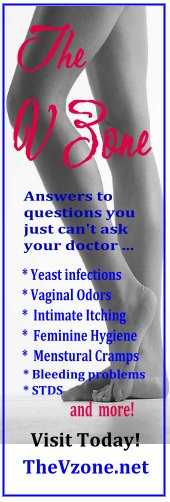If you're wondering if those hormone-based fertility treatments you had in your 30's or 40's are going to come back to haunt you again in the form of an early or extended menopause - take a deep breath and relax.
The study, which was the first to look at the long term effects of IVF (in vitro fertilization) during the menopause years, included some 200 women who had just turned 50 years old. They were among the first women to receive IVF treatmetns in the 1980's.
The result: According the national averages in Great Britain, the women who under went IVF did not start menopause any sooner than other women in their age group, nor did they experience any more severe or lasting symptoms, including hot flashes, night sweats and mood swings.
Study Answers Some Questions - Not All
While the new report is reassuring in regard to menopause symptoms, it still does not tell us if women who used fertility medications may be at increased risk for either ovarian or breast cancer, later in life. This is particularly important since some earlier studies have indicated possible links between fertility drugs and ovarian cancer.
At least one type of fertility medication frequently used in conjunction with IVF helps a woman produce more eggs. It is this stimulation -and the additional estrogen involved in that process - that may play a role in some estrogen-sensitive cancers, including certain types of breast and ovarian cancers.
What you can do right now: If you used fertility drugs in your 30's or 40's - whether or not you conceived - make certain your current gynecologist and your primary care doctor have this information. Then discuss whether or not you may benefit from more frequent mammograms, or periodic vaginal sonograms used to accurately assess the health of your ovaries.
To find more information on menopause symptoms, breast cancer risks, and other mid life health issues visit YourMenopause.com - The source for midlife health.
A new study published in the British journal Reproductive Bio Medicine reports no links between the use of fertility medications and early or severe menopause symptoms.
The study, which was the first to look at the long term effects of IVF (in vitro fertilization) during the menopause years, included some 200 women who had just turned 50 years old. They were among the first women to receive IVF treatmetns in the 1980's.
The result: According the national averages in Great Britain, the women who under went IVF did not start menopause any sooner than other women in their age group, nor did they experience any more severe or lasting symptoms, including hot flashes, night sweats and mood swings.
Study Answers Some Questions - Not All
While the new report is reassuring in regard to menopause symptoms, it still does not tell us if women who used fertility medications may be at increased risk for either ovarian or breast cancer, later in life. This is particularly important since some earlier studies have indicated possible links between fertility drugs and ovarian cancer.
At least one type of fertility medication frequently used in conjunction with IVF helps a woman produce more eggs. It is this stimulation -and the additional estrogen involved in that process - that may play a role in some estrogen-sensitive cancers, including certain types of breast and ovarian cancers.
What you can do right now: If you used fertility drugs in your 30's or 40's - whether or not you conceived - make certain your current gynecologist and your primary care doctor have this information. Then discuss whether or not you may benefit from more frequent mammograms, or periodic vaginal sonograms used to accurately assess the health of your ovaries.
To find more information on menopause symptoms, breast cancer risks, and other mid life health issues visit YourMenopause.com - The source for midlife health.






































No comments:
Post a Comment